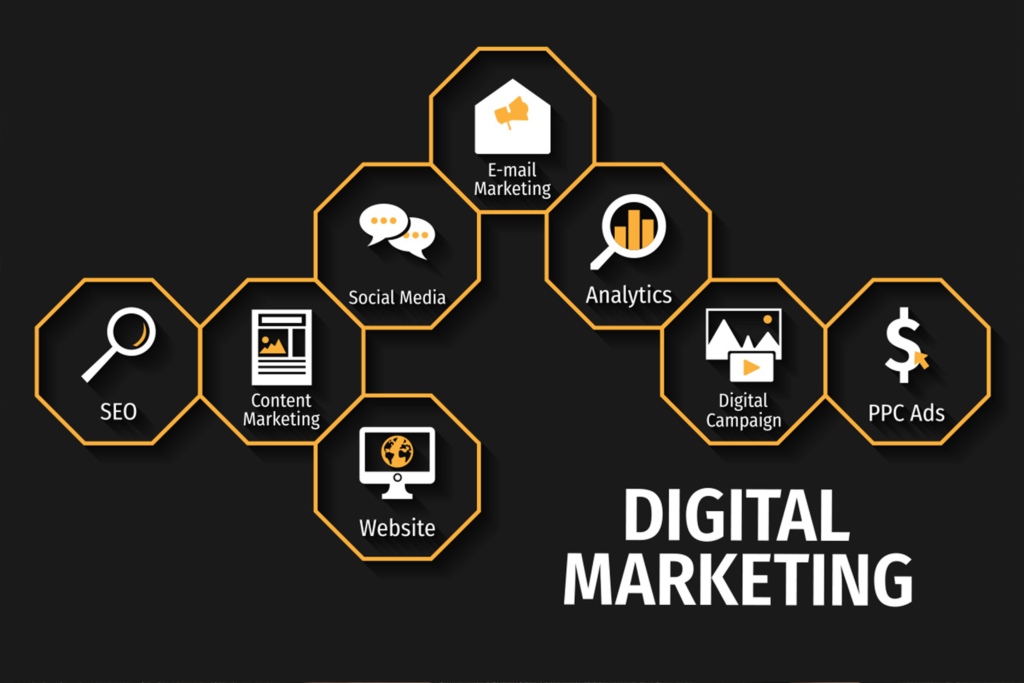In today’s digital landscape, Search Engine Optimization (SEO) has become an indispensable tool for businesses looking to increase their online visibility, attract organic traffic, and drive conversions. With search engines serving as the primary gateway to the internet, optimizing your website for search has never been more critical. In this guide, we’ll delve into the fundamentals of SEO and provide actionable tips to help you unlock the full potential of this powerful marketing strategy.
What is Search Engine Optimization (SEO)?
Search Engine Optimization (SEO) is the process of optimizing your website to improve its visibility and ranking in search engine results pages (SERPs). By implementing various techniques and strategies, businesses can increase their chances of appearing at the top of search results for relevant queries, driving organic traffic to their website and reaching potential customers at the moment they’re actively searching for information, products, or services.
The Benefits of Search Engine Optimization (SEO)
- Increased Visibility and Traffic: Ranking higher in search results can significantly increase your website’s visibility and attract more organic traffic. Studies show that websites listed on the first page of search results receive the majority of clicks, making it essential to aim for top rankings.
- Enhanced Credibility and Trust: Websites that appear at the top of search results are often perceived as more credible and trustworthy by users. By optimizing your website for search, you can establish your brand as an authority in your industry and build trust with your audience.
- Cost-Effective Marketing: Unlike paid advertising, which requires ongoing investment, organic search traffic is free and sustainable over time. By investing in SEO, businesses can achieve long-term results and reduce their reliance on paid advertising channels.
- Targeted Traffic and Qualified Leads: SEO allows businesses to target specific keywords and phrases related to their products or services, attracting highly relevant traffic to their website. This targeted traffic is more likely to convert into leads or customers, resulting in a higher return on investment (ROI).
- Insightful Data and Analytics: SEO tools and analytics platforms provide valuable insights into user behavior, search trends, and website performance. By analyzing this data, businesses can identify opportunities for optimization, track the effectiveness of their SEO efforts, and make data-driven decisions to improve their strategy.
Key Elements of a Successful SEO Strategy
- Keyword Research: Identify relevant keywords and phrases that your target audience is searching for. Use keyword research tools to uncover search volume, competition levels, and potential opportunities to target high-value keywords.
- On-Page Optimization: Optimize your website’s on-page elements, including titles, meta descriptions, headings, and content, to align with your target keywords and improve its relevance and visibility in search results.
- Technical SEO: Ensure that your website is technically sound and optimized for search engine crawlers. This includes optimizing site speed, fixing broken links, improving mobile-friendliness, and implementing structured data markup.
- Content Creation and Optimization: Create high-quality, informative, and engaging content that addresses the needs and interests of your target audience. Optimize your content for relevant keywords and incorporate multimedia elements, such as images and videos, to enhance user experience.
- Link Building: Earn backlinks from authoritative websites and industry publications to boost your website’s authority and credibility in the eyes of search engines. Focus on acquiring high-quality backlinks from reputable sources through outreach, guest blogging, and content promotion.
- Local SEO (if applicable): If your business serves a local audience, optimize your website for local search by claiming and optimizing your Google My Business listing, creating local content, and earning citations from local directories and websites.
- Monitoring and Analysis: Regularly monitor your website’s performance in search results using SEO tools and analytics platforms. Track key metrics such as organic traffic, keyword rankings, and conversion rates to assess the effectiveness of your SEO strategy and identify areas for improvement.
Conclusion
Search Engine Optimization (SEO) is a powerful marketing strategy that can help businesses increase their online visibility, attract organic traffic, and drive conversions. By implementing a well-planned SEO strategy and staying informed about the latest trends and best practices, businesses can achieve long-term success and stay ahead of the competition in today’s competitive digital landscape.
Ready to elevate your SEO strategy and drive meaningful results for your business? Contact us today to learn how our team of SEO experts can help you develop and execute a customized SEO strategy tailored to your unique business goals.

